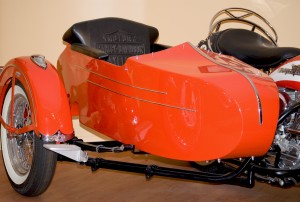I’m in the process of making a character for an ongoing game of Scion. It’s a play-by-post kind of game, and I was playing for a while as a different character, so I’m familiar with the setting as the Storytellers are writing it. I know the politics and the houserules and the homebrewed knacks. I’ve picked a god-parent for my character, I know how I could build her for the best mechanical benefit. But I haven’t finished her yet. Mostly because I have no idea what I want to do with her. I’m lucky. I get to play – a lot. Most of my friends are gamers, and I seem to have fallen in with a good deal of Storytellers, Dungeon Masters, Marshalls, and so on. Which means that I’ve built a lot of characters over my gaming career. A lot. They haven’t all been immediate inspirations, though. I’ve needed shoves, mechanical help, and, more rarely, a complete overhaul to come up with something I like.
And so, the mental block I’m running into has me going through my list of ways to get myself interested in, and psyched up to, a fresh, shiny new character that I’ll end up invested in. Bear with me here – it’s a long list. Not all suggestions work for every system, or every person, or every game. But it’s a good place to start.*
- Go to the symphony, go to an art gallery
Of course, you don’t actually have to go to the gallery. Or leave the house. Most artists have galleries online, and with Pandora, Google Play, and Grooveshark, any type of music is accessible with a click. Finding an artist with similar thematic elements to either the setting you’re playing in or the types of characters you like to play can provide tons of material to draw from when it comes time for character creation. Although you’re not likely to find mechanical inspiration at this stage, taking imagery from a painting and translating it into something more concrete can provide an immediate backstory, as well as giving a jumping point for historical references. A whole album can be picked apart for those pieces of lyrics or swells of emotion that can be summarized into a playable whole.

Modern horror? Tom Waits. Gothic horror? Tom Waits. High fantasy? Tom Waits. Sci-Fi? Tom…I might have a problem.
- Hang out on Wikipedia
Load up Wikipedia. Hit ‘random’ a few times, and find something that interests you. Play ‘Six Degrees of Kevin Bacon’ for a moment, because you deserve a break from all this research. Hopefully, you’ll find something you think is interesting, cool, or just plain weird. Did you find ‘1925 Tour de France’? Skim the article, click on those blue links, and read about the people involved. Real people can lead surprisingly interesting, cool, and oddball lives. Even minor ‘citation needed’ people in historical articles can be good fodder for characters – history gave you a setting, and now you can imagine their lives within the context of the game in which you’re playing. Did you find someone who was already interesting while playing the Kevin Bacon game? Read up on them. Repeat this until you’ve found an event, a career, or a time period that calls to you.
- More internet – Random Generators
Because at this point, you haven’t spent enough time on Wikipedia. Random generators can be amazing resources – but they can also be crutches, which is why I’d suggest using them for much more the launching pad than the rocket ship. You can find name generators, personality generators, quirk generators, random ‘how my wizard’s tower is decorated’ generators…I think you get the idea. Though I’m always loath to build an entire character from bits and pieces of what people I don’t know on the internet suggest, I do enjoy the breadth of suggestions I can find. The ideas that can be generated with the click of a button can be different enough from the ideas that your brain associates with the setting you’re playing in that they may jostle some kind of inspiration loose. And, if nothing else, you can find out that your character’s interests include cop shows, Byronic heroes, frogs, and ferrets.
- Go bother another player
Hopefully, you know the other people that you’re playing with, and if you don’t hopefully you have their emails, or something. Have a sit-down, bring coffee and paper, and talk to them about their character. Maybe their character can benefit from a sidekick, a sibling, or a sentient sword – played by yourself, of course. And look! Your backstory’s half written already, if player one doesn’t mind you borrowing from it. And you’re doing a great thing – setting yourself and the other player up for immediate roleplay connections, and in turn, maybe even inspiring your player-buddy to further explore their character. You don’t even have to play an agreeable character in relation to the other players – building something of a ‘frenemy’ can be a challenge, but a fun one. If you do this with all the players, it has the added benefit of encouraging cohesive characters, too.
- Go bother the GM
While you’re over here floundering for a character concept (so I am…), I’d put money on your GM having a semi-solid idea of what types of characters fit into the campaign. So why not go talk to them? At the very least, they should be able to fill you in on existing political structures, social trends, and setting that you can then use to build something that will fit nicely into the game. You might even get suggestions – if they have a particular storyline in mind, you could even get assistance tailored to a plot. It means you know you’re guaranteed some spotlight, and your GM can rely on your character during the game to have a particular skillset that they can call on so the party doesn’t get stuck. Win-win, all around. Of course, this requires your GM knows what they’re running beforehand. You know your group better than I do.
- Thematic Building
Did you just visit the ocean? I did. I’ve got pictures of me with my bare feet in the Pacific, wearing shorts, in January. Which is awesome, since I live in Western New York, and it’s colder than Maleficent’s heart. And it makes me want to play a character based around the ocean – which is great, because a lot of systems have groupings of abilities centered around the elements, magic, and combat styles. Picking a central theme that interests you can be a fun way to explore that concept in a different world, and it’s a good way to bring a sense of cohesiveness to a character. Choose water, pick a race and a class based around oceans, give water-based abilities. If your GM agrees, you can even re-skin options and change trappings of existing abilities towards those that fit your concept. It doesn’t have to be limited to elements, either – especially because those don’t always translate well to modern and non-magical games (Though a surfer who is a champion Free Diver, championing clean oceans and accessible water could be cool, too). The theme could be an era – the ideals and cultural focuses of the 1980s are completely different from those of the English Restoration. Pulling important concepts from one era to translate to a character’s backstory can provide an unusual and interesting experience, as well as giving you source material to draw from. Back to wikipedia with you!
- Re-skinning and rule 63
You’ve tried everything already, and you’re still at a loss for a character? Okay. You’re a nerd, a geek, or a dork, right? So you’re likely consuming media – movies, books, music, comics – and you’re likely to have characters you admire, characters you think are awesome, and characters you’d love the chance to play. But you can’t just ask your GM If you can play a chaotic good drow who fights against his evil dark elf culture and ways, with his twin scimitars. Your GM will laugh at you. And with good reason, too. But what if you love Drizz’t? Well, try a re-skin. Or replace a key element of the character, and then run with it. This one will likely involve a lot more running ideas by the GM than the others, but it’s still a worthwhile exercise. What would Drizz’t be like if he were a woman, fighting with a hammer, and also an orc? Boom, different character. Elements of the character’s backstory can be altered to fit the new race/class combination and tweaked until it fits well into the setting. Even re-imagining your beloved characters in different settings can be a great place to start. Harry Dresden, Wizard for Hire plays completely different in a high-fantasy game than he does in a game of Mage. Which is another reason you have to run your characters by your GM – Harry Dresden doesn’t work in Mage.**
- Play to Trope
Go to TVTropes.com. Actually, don’t, because you’ll lose five hours of your life to the site. But you’re familiar with the ideas on the site. Stoic fighters, ragingly stupid barbarians, lascivious rogues, enigmatic witches, bearded wizards, manic sorcerers. They’re all baseline concepts that we’ve been fed in media since day one of enjoying Fantasy, Sci-Fi, and even modern books and films. So play one. If you’re like me, you’ve avoided playing them – there’s something of a stigma in some circles attached to playing the most simple iteration of a type of character. But they can be so much fun. Go ahead, play the dumber-than-rocks barbarian with a huge hammer who lives for nothing more than the next fight, who doesn’t understand what drinking fountains are, who gets insulted at the least offensive ‘cultured’ statements. Play the sorcerer with fire in their eyes who babbles on about the things beyond the outer realm, throwing fireballs at everything in their way, secretive and bizarre. While I wouldn’t recommend your every character comes from these kinds of tropes, they can be great ways to get out of a rut, because they come practically pre-built.
- Play against Trope
So you’re going to play an empty-headed barbarian, or a cutthroat rogue, or that fire-and-brimstone paladin? Awesome! Just…change one thing about that trope. Make your barbarian book-learned. They can read, write, and recite poetry. Play the harp. Enjoy engaging in discussions of morality, and will attempt to talk their way out of a fight before it starts. That rogue who sleeps with everyone and backstabs everything? Also provides almost the entirety of their wealth to the local church of the Good and Right God. Your shield-clanging paladin doesn’t actually care if people convert, and is actually a paladin of Science and Technology. Just a small twist in the basic concept can provide great roleplay fodder while giving you something to customize your character into a more relatable form for the table.
- Step outside the box
If you’re playing a supers game, you don’t necessarily have to play Thor, or even Iron Man. You don’t have to play a Jedi to enjoy the Star Wars universe. Dr. Jane Foster is as much her own character in the Marvel universe as any of the Avengers, and Princess Leia is just as important as Luke when it comes to dealing with the forces of evil. Being creative with the source material and the setting can bring about some interesting characters that are just as viable as those pulled directly from the setting book.
- Why aren’t you inspired?
This is the last, but the hardest. You might need to sit down and give the character-building a rest for a day or two, and take a minute to figure out what it is that’s blocking you from making a PC. If it’s because you’re swamped at work, you’re fighting with your BFF, or your cat just died, take your time. Your group’s going to understand (and if they don’t, ditch them, they’re jerks). But if you’re having a hard time because of something going on in-game, pinpointing what it is might be helpful. If you’re just not sure what kinds of characters will work with the story, a quick chat with the GM solves that. If you’re having issues with another player, recognizing that can lead you to figure out ways to resolve (or work around) that. If your playstyle differs vastly from the dominant one in your group, maybe you can talk with everyone and come to a compromise that allows you to build, and play, the characters you want.
Of course, these are all just suggestions. They may not work for you, for your group, or for your setting. That being said, if you’ve got other ideas, please share them – I still don’t know what I want to play in Scion.
*As always, run all outlandish, strange, or even unusual ideas past the person running your game.
**Player wanted to be Harry Dresden in Mage: The Awakening. Even after Paradox and Vulgar magic was explained to this person, they continued to insist they wanted to be public, well-known, and for-hire. Shrugs were made, and the PC exploded about thirty minutes into play due to Paradox. Ah well.
Here’s a small dump of some of the generators I have bookmarked.
Abulafia – a whole mess of bizarre generators, revolving around ‘In a Wicked Age.’ I use it for any setting, though, as there are generators for…well…it’s weird. Go look.
Springhole – my go-to for finishing off a character. Gives random interests and a whole slew of other fun clicky-things.
Ash’s Guide to RPG Personality & Background – I love this one – even if I know exactly how my character acts, I like this because it forces me to use my words and make things more concrete.
Fantasy Name Generator – because who doesn’t love linguistics?
Serendipity – and this is just hilarious. Do you need a random dress generated? They’ve got that for you.




















Fabulous ideas! Now I want a new game to play so I can use some!
I always wish there were a new game, I love making characters.